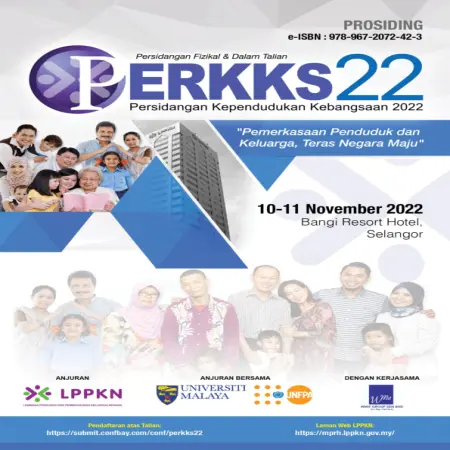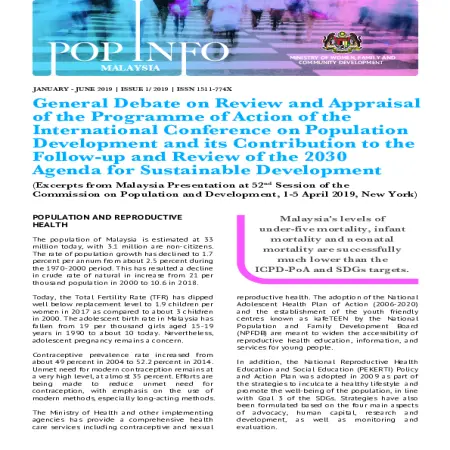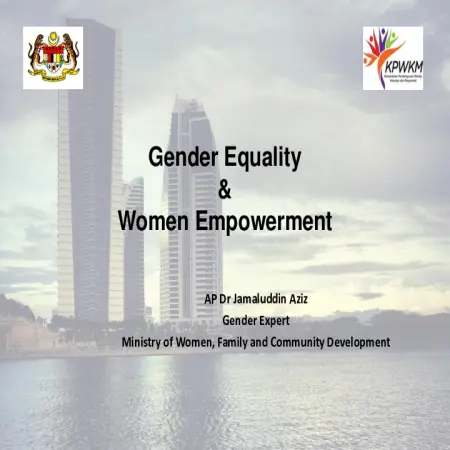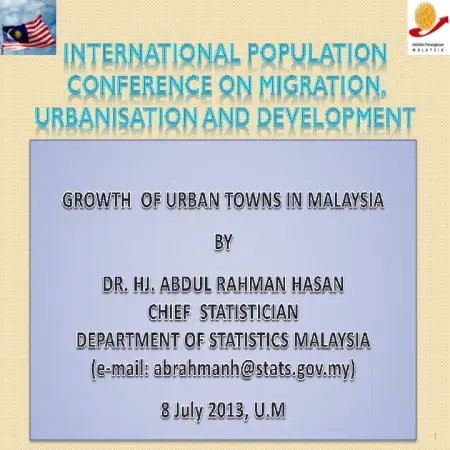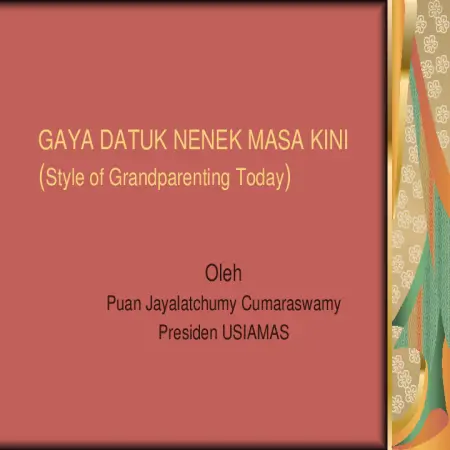PUBLICATIONS
|
|
Grandparenting in Malaysia: evidence from household surveys
Item Type: Book Section
Editor:
Year: 00/00/2022
Abstract: The lack of childcare facility and support has resulted in fertility decline and low female labour force participation rate in Malaysia, as some women forgo childbearing to focus on career development, while others stop working to look after their children. Grandparents can play a crucial role in childcare, to allow women to combine their maternal role with work. This paper analyses grandparents’ roles in childcare by socio-demographic characteristics.
|
|
|
|
|
|
General debate on review and appraisal of the programme of action of the International Conference on Population Development and its contribution to the follow - up and review of the 2030 agenda for sustainable development
Item Type: Newsletter
Editor:
Year: 00/00/2019
Abstract: The Population of Malaysia is estimated at 33 million today with 3.1 million are non-citizens. The rate of population growth has declined to 1.7 per cent per annum from about 2.5 per cent during the 1970-2000 period. Malaysia is moving towards becoming one of the aged countries by 2030. The fast pace of ageing population is as a result of longer life expectancy and rapid decline in Total Fertility Rate (TFR).
|
|
|
|
|
|
Gender equality and women empowerment
Item Type: Conference or Workshop Item
Editor:
Year: 00/00/2016
Abstract: The term gender equality is usually seen as synonymous with women’s empowerment. In Malaysia, the task of promoting gender equality as a vision and mission of the country’s development project has been shouldered by the Ministry of Women, Family and Community Development (henceforth KPWKM). Throughout the year, KPWKM has been focusing on empowering women in all areas of life, particularly in politics and economy. The formulation of the National Policy on Women and its ensuing Action Plan is the epitome of this effort. In addition, Gender Mainstreaming has been employed, albeit rather flighty, as KPWKM’s strategy to achieve gender equality. However, in contemporary Malaysian context, the link between gender equality and women’s empowerment has turned into a stigma that belies the importance of this development mission. This paper presentation seeks to address one of the reasons, that is, the dissemination of information about gender equality and women’s empowerment. I argue that the inconsistency and lack of strategy in the Ministry’s effort to strategically promote gender equality and women’s empowerment is a course for concern.
|
|
|
|
|
|
Gaya hidup wanita dan faktor risiko kanser payudara: satu kajian literatur
Item Type: Article
Editor:
Year: 00/00/2015
Abstract: Breast cancer is currently the most common cancer in women worldwide. It is said that there is no proven method of preventing cancer. However, studies have shown that there are some women’s lifestyle factors that have been scientifically shown to increase the risk of breast cancer. A review of the literature from the epidemiological, medical, and psychosocial disciplines strives to analyse factors that tend to increase the risk of developing breast cancer. Published material reviewed concerning the connection between breast cancer risk and lifestyle factors such as diet and physical activity. This review shows that several women’s
lifestyle factors have been regularly considered as risk factors for developing breast cancer. They include women who have not had children or women who had their first child at an older age, short duration of brestfeeding or not breastfeed at all, diet and nutrition, and psychological stress.
|
|
|
|
|
|
Growth of urban towns in Malaysia
Item Type: Conference or Workshop Item
Editor:
Year: 00/00/2013
Abstract: Malaysia has experienced an outstanding growth of urban towns since its formation in 1963. The shift from agricultural to an industrial based economy has inevitably led to rapid physical, social and economic changes. The impact of urban spatial transformation accentuated the growth in the number of urban towns with urban centres increasing in size and expansion of major towns outwards to sprawl into peripheries. This paper highlights the growth of urban towns in Malaysia based on the data available from the 1970, 1980, 1991, 2000 and 2010 Population and Housing Censuses. The data reveals a surge of growth in number from 72 towns in 1980 to 228 towns in 2010. The increase in the growth of urban centres and the urbanization process is the result of spatial transformation, demographic phenomenon and various government measures for a measureable balanced development.
|
|
|
|
|
|
Gaya datuk nenek masa kini
Item Type: Conference or Workshop Item
Editor:
Year: 00/00/2012
Abstract: Based on conversative views of grandparents, grandparents are individuals who have gray hair, weak, wearing glasses and sitting on a rocking chair. Nevertheless, advances in health and socio-economic conditions have led to healthy, highly educated, still working and active seniors. Statistics show men and women spend longer time as grandparents (25years) compared to being parents with responsibilities to children (18 years). Research indicates there are substantial benefits to children interacting with grandparents. This slide presentation discuss about style of grandparenting today.
|
|
|
|





